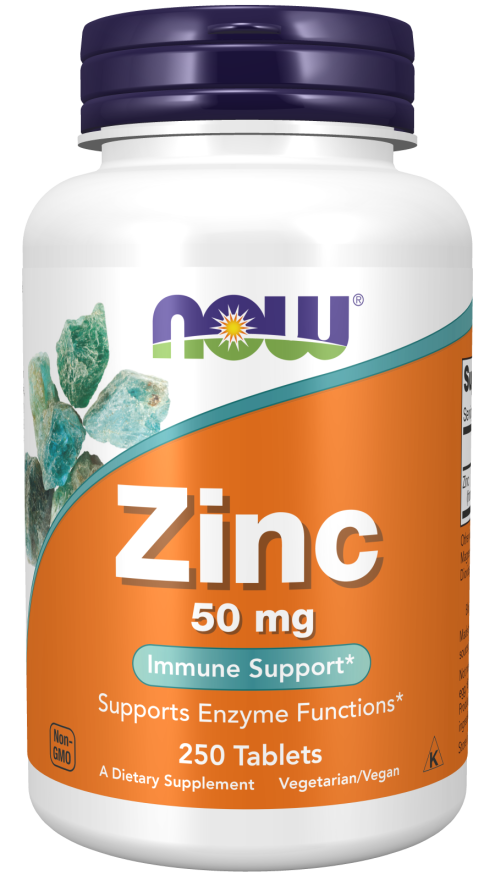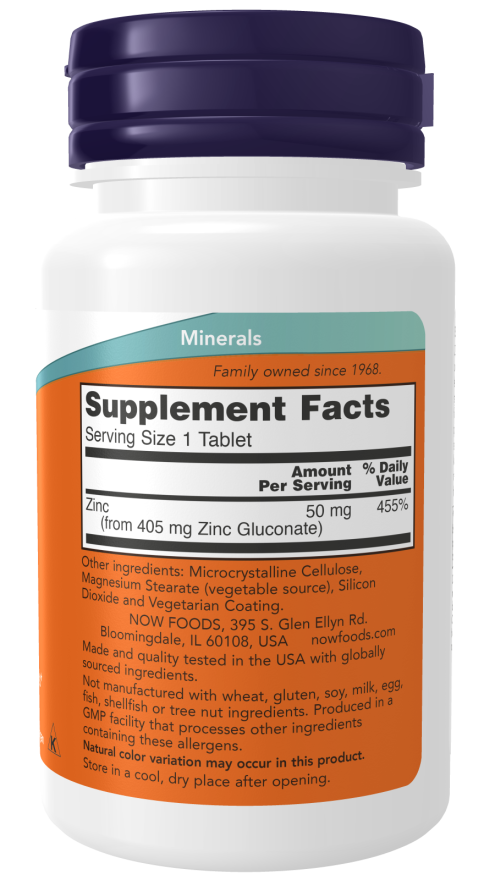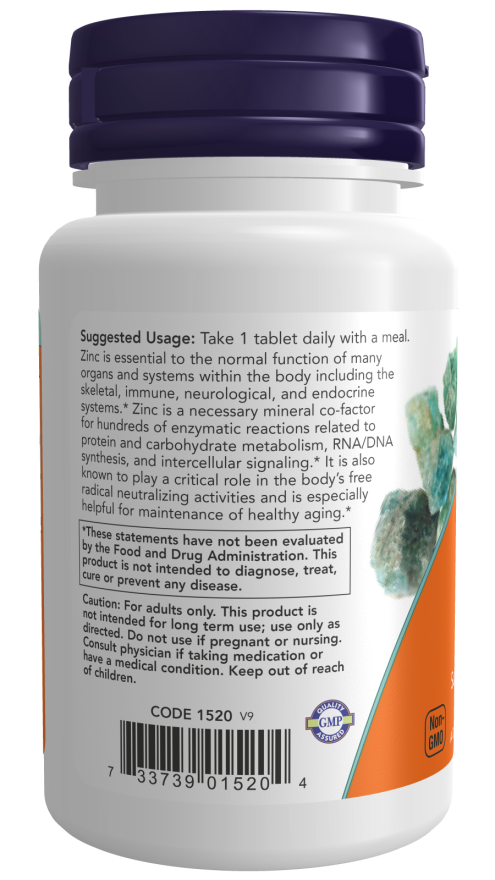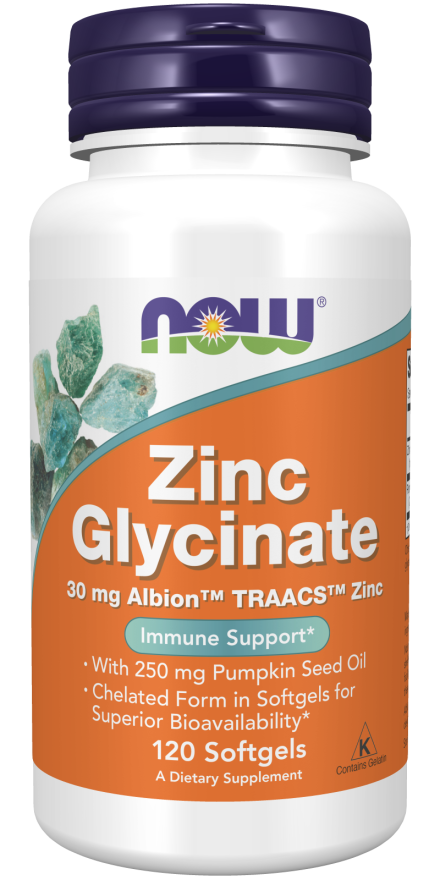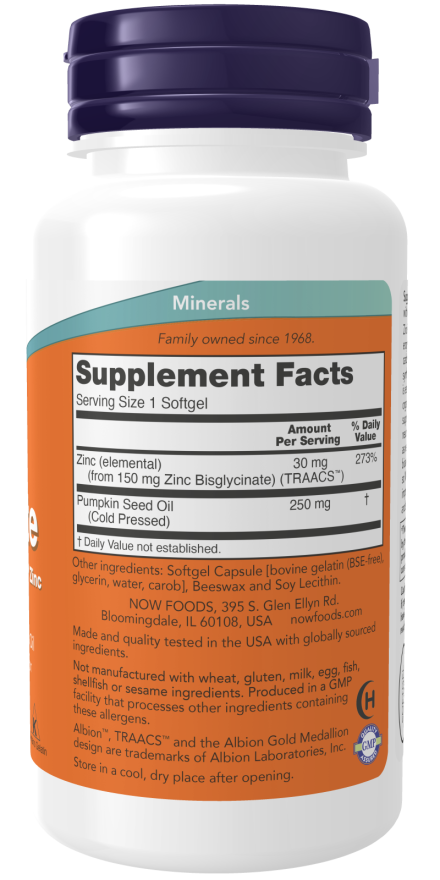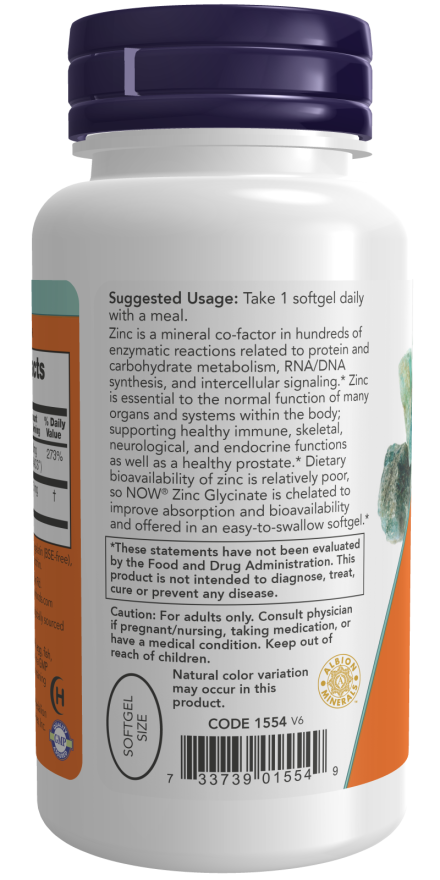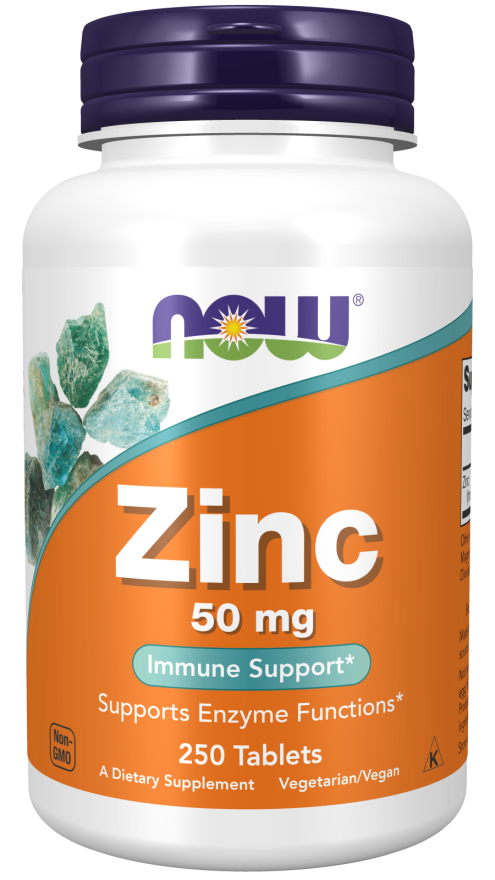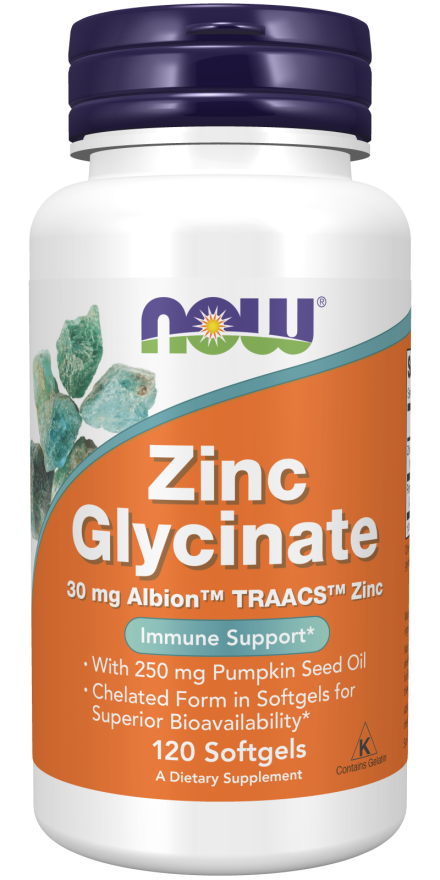The metabolic activity of 300 of the body’s enzymes requires the essential trace mineral Zinc... Learn more
What is zinc?
The metabolic activity of 300 of the body’s enzymes requires the essential trace mineral zinc. Scientists consider zinc essential for cell division and the synthesis of DNA and protein, as well as the metabolism of protein, carbohydrate, fat, and alcohol. The human body also needs zinc for wound healing, immune function, brain function, and a keen sense of taste, as well as the production of natural testosterone and sperm.
It is interesting to note that humans contain roughly 2-3g of zinc. Since our bodies have no specific storage sites for zinc, we require a regular supply in the diet. Zinc can be found in all parts of our body, 60% in muscle, 30% in bone, and about 5% in our skin. The prostate gland and semen contain particularly high concentrations. Men need more zinc than women because male semen contains 100 times more zinc than is found in the blood. Not surprisingly, the more sexually active a man the more zinc he will require.
What are food sources of zinc?
Rich sources of zinc include shellfish, beef, and other red meats, as well as meat and eggs. Good amounts of zinc can be obtained from nuts and legumes, with pumpkin seeds being an especially reliable source, although other plant foods such as whole grains are problematic, since those contain substances called phytates that tend to block absorption of zinc. Leavened (that is, yeast-containing) whole gain bread is a fair source, because the leavening process tends to neutralize the phytates.
What is zinc used for?
In health food stores all across the country zinc is one of the most popular mineral supplements, in part because even a moderate degree of zinc deficiency affects the body’s ability to make T-lymphocytes, a kind of white blood cell that helps fight infections. Presumably this is why malnourished children in Africa and elsewhere in the Third World seem to experience shorter courses of illness after taking zinc supplements in the range of four to forty milligrams a day. Other studies conducted in America suggest that similar amounts of zinc taken in pill form may also help those in the First World boost their immunity against common diseases such as flu and colds.
However, these days zinc may be most popular taken as a lozenge, thanks to the publication of a 1996 Cleveland Clinic study. Study participants who started taking zinc lozenges within 24 hours of the onset of symptoms were free of cold symptoms on average by about 4 1/2 days. Those who took a placebo had symptoms for 7 1/2 days. Research at Dartmouth University and elsewhere has yielded similar results. This holds out the possibility that millions of people maybe be able to reduce the duration of their colds, thereby missing fewer days of work and also lessening their overall misery.
More than 50 percent of men over the age of forty have prostate enlargement (benign prostatic hyperplasia, or BPH), and after age eighty it is 80 to 90 percent, often leading to urinary symptoms and surgery. However, the use of zinc supplements may be of considerable use to men at risk for these and other prostate conditions.
In one study at the Center for Study of Genitourinary Diseases in West Dundee, Illinois, male subjects suffering from BPH took 150 milligrams of zinc sulfate every day for two months, followed by 50 to 100 milligrams a day as a maintenance dose. Over time, 14 of the 19 men experienced shrinkage of the prostate. These results have been duplicated in a number of other studies. (A possible mechanism of action is suggested by work at the University of Edinburgh Medical School in Scotland: Test tube experiments using prostate tissue found that high doses of zinc inhibited the activity of 5-alpha-reductase, the enzyme that converts testosterone to its more powerful cousin, dihydrotestosterone. Levels of dihydrotestosterone typically rise with age, especially in men.)
Zinc has many other potential uses as well. Down’s Syndrome children, for instance, may require large amounts of this trace mineral, as well as smokers, heavy drinkers, and vegetarians.
How is zinc taken?
For short term use—that is, a few weeks—zinc may be used in lozenge form to benefit from its possible effects against the common cold. For longer term use many may wish to take approximately 15-30 mg of zinc per day in pill form. This can be obtained from a good multivitamin or from a stand-alone zinc supplement.
Since zinc and another essential mineral, copper, compete for absorption, it might be best to take both together so as to avoid inducing a copper deficiency.
Is zinc safe?
Long-term, high doses of zinc have also been shown to lower HDL (the "good" cholesterol), to suppress immune system function and to interfere with the absorption of copper which may result in a condition known as microcytic anemia. Do not take more than 50 mg of zinc per day unless you are under the supervision of a nutritionally knowledgeable physician.
And remember, you can obtain the best selling zinc supplements from A1Supplements.com at the lowest prices!
© A1Supplements.com
These statements have not been evaluated by the Food and Drug Administration. This product is not intended to diagnose, treat, cure, or prevent any disease.
